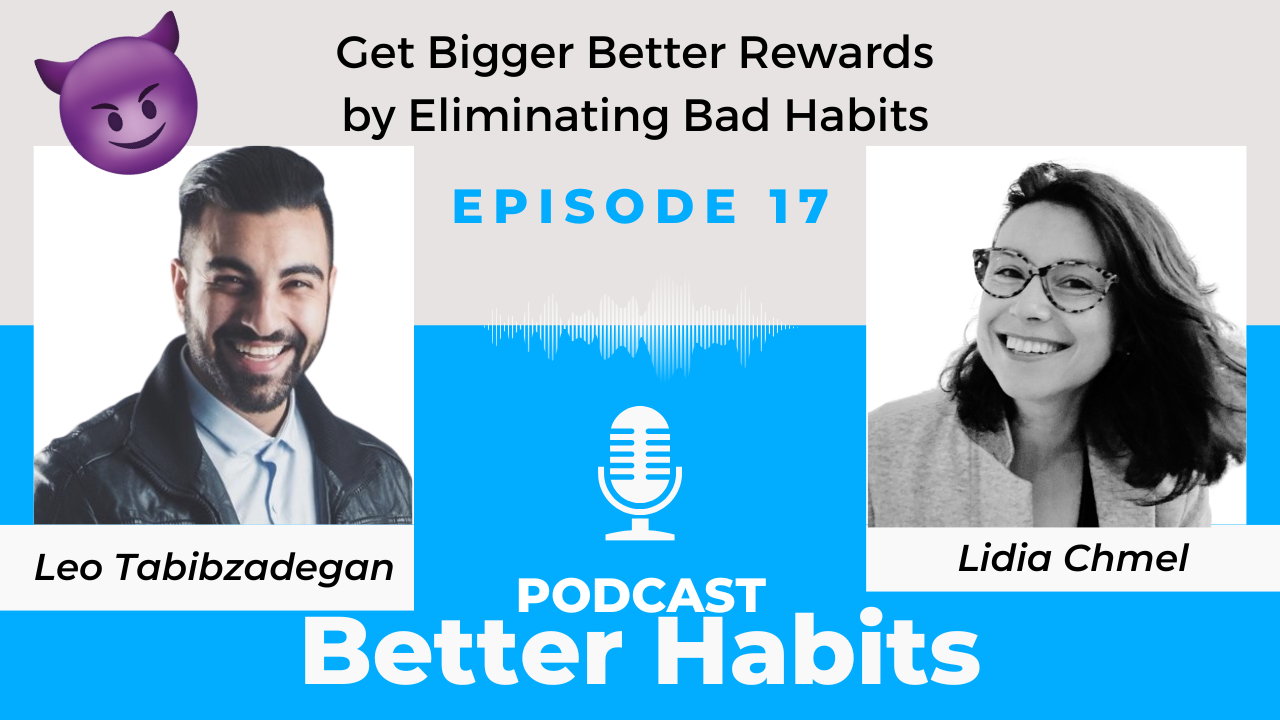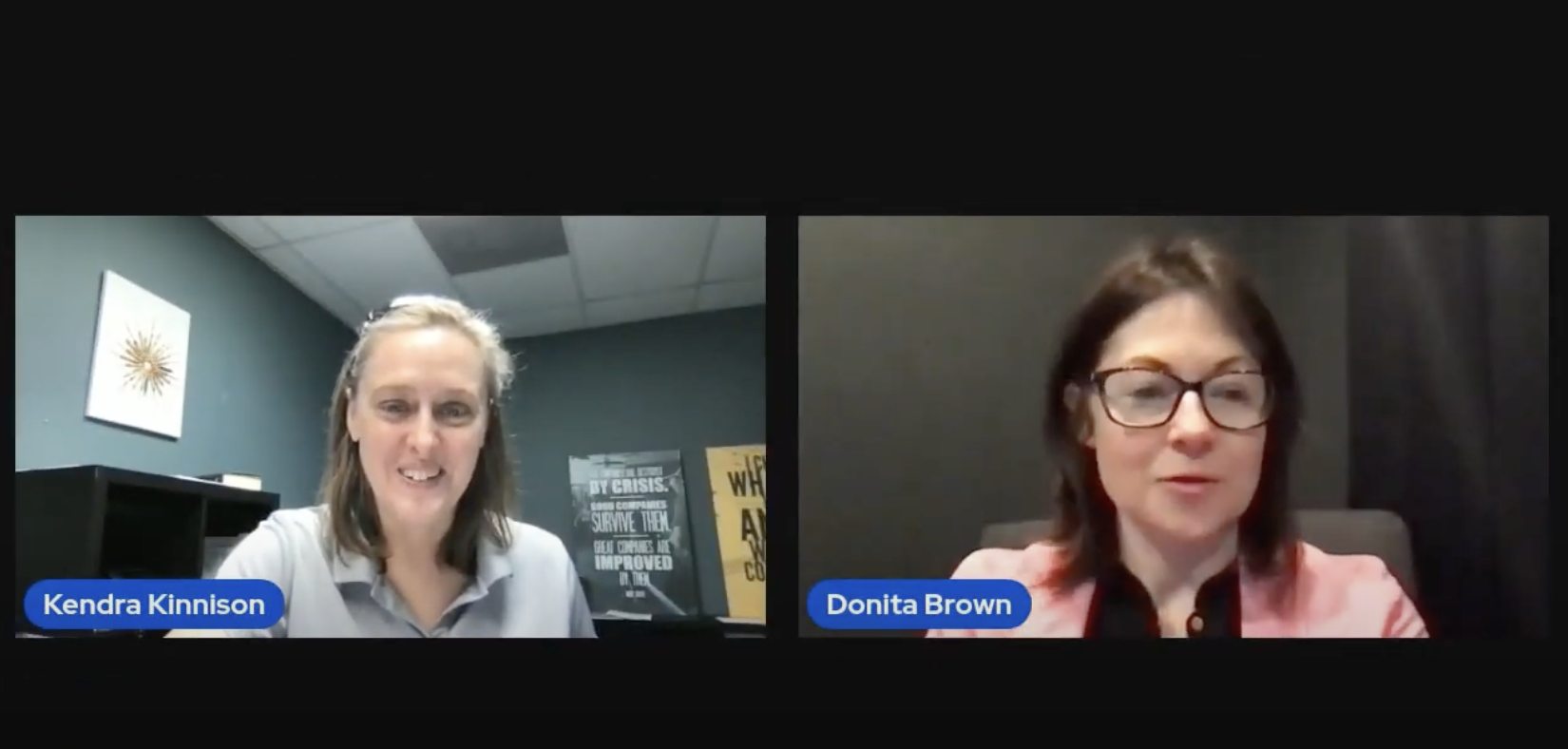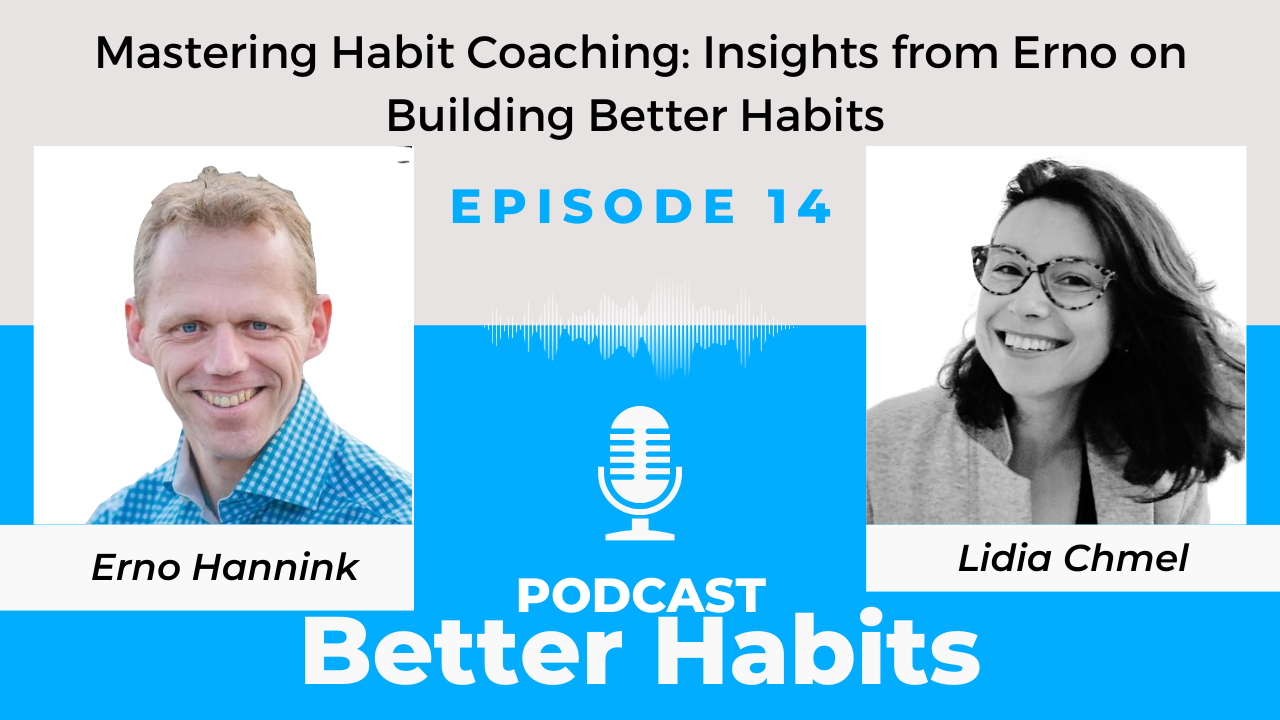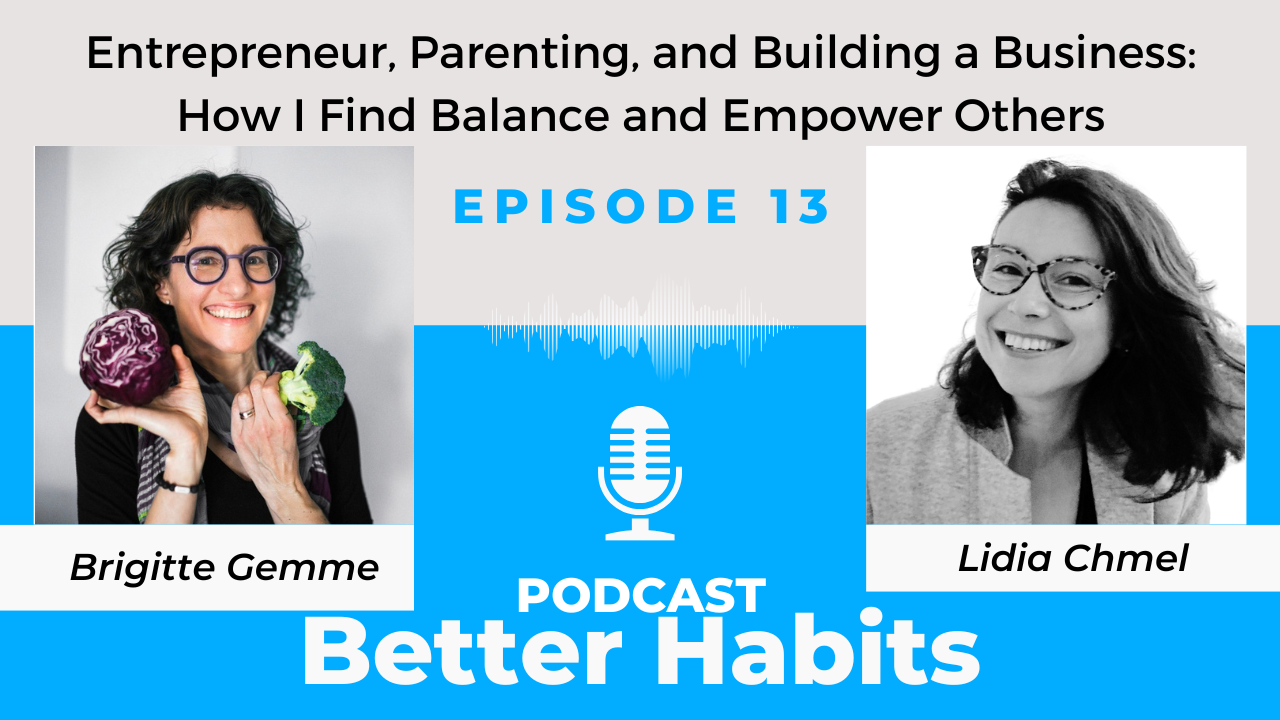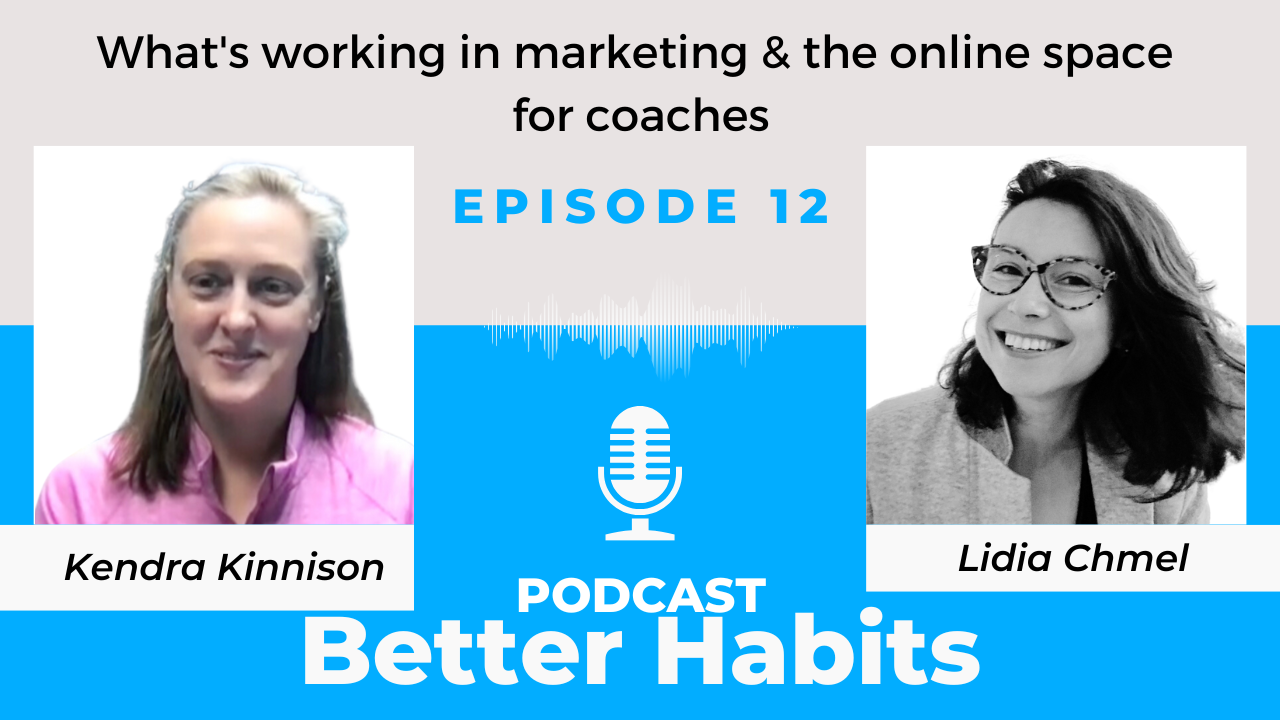How often does this happen to you: you start the week with a list of very feasible goals but by Friday, the project launch has been pushed to next week, the blog post remains in draft mode, and sales calls haven’t been made. No one knows busy days quite like entrepreneurs so we asked some of them what habits they rely on to keep their productivity high. Some entrepreneurs try their best to reward themselves with ways to help boost their productivity. I mean, if applying the use of an industrial keyboard can help improve productivity in the food processing industry, then I don’t see why you wouldn’t be able to find a solution to whatever industry you work in that can help boost your levels of productivity.
If you are interested in finding out how you can boost your productivity, or the productivity of your employees, you might be interested in somewhere similar to https://www.blueboard.com/employee-appreciation.
Increase your productivity by adopting these 7 strategies used by founders of companies like Twitter, LeWeb and Buffer.
Workout When You’re Least Productive
Takeaway: You’ll get more done if you work according to your circadian rhythm instead of working 9-5pm.
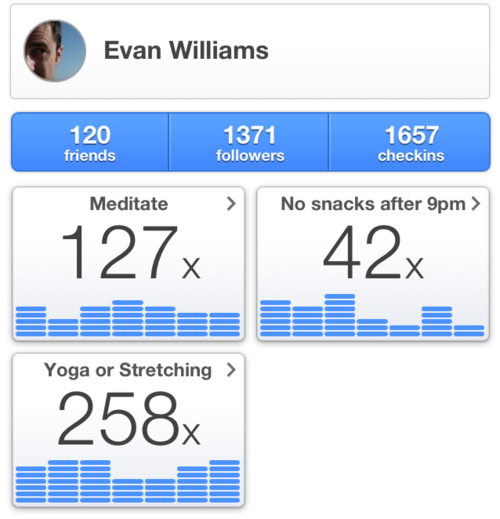
Evan Williams isn’t at work in the middle of the day. You’ll find the founder of Blogger, Twitter and Medium at the gym instead.
The potential for productivity fluctuates at different times of the day for different people. Clue into your energy changes and then plan your work schedule so that you’re doing your most important work during your most productive times.
I used to go to the gym first thing in the morning. Exercise is, of course, great for energy levels and I believe it makes me more productive no matter what. But energy and focus naturally ebb and flow throughout the day.
My focus is usually great first thing in the morning, so going to the gym first is a trade off of very productive time. Instead, I’ve started going mid-morning or late afternoon (especially on days I work late). It feels weird (at first) to leave the office in the middle of the day, but total time spent is nearly the same with higher energy and focus across the board.
Schedule Easy, Small Tasks as Work Breaks
Takeaway: Interruptions can boost your creativity if you schedule them at the right times.
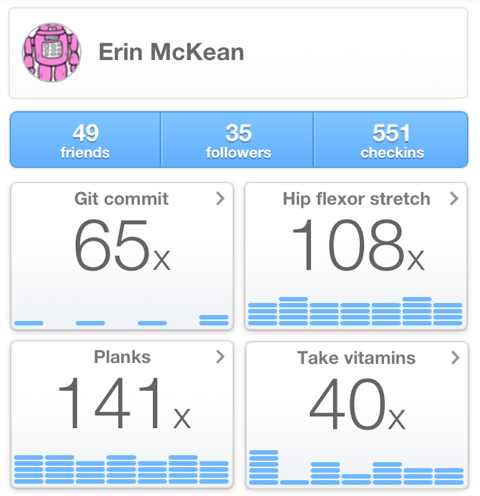
Erin McKean, the founder of the online dictionary Wordnik, interrupts her schedule with small, easy tasks in order to increase her productivity.
What’s the science behind “productive” distractions? Dr. Shelley Carson of Harvard University discovered that focusing on a problem limits creativity because you become more selective when responding to brain signals. Switching to a task that requires less focus reverses the bias and therefore increases your ability to think creatively.
Working on something else is a great way to clear your mind of the ‘primary problems.’ There’s only so far you can run and only so many showers you can take to try to trigger that creative distance. Sometimes stepping away from the problem is the best way to solve it.
When I want a little break, I look at my daily Lift goals and tackle one of them. I like Robert Benchley’s maxim: Anyone can do any amount of work, provided it isn’t the work he is supposed be doing at that moment.” Doing that ‘work I’m not supposed to be doing’ is much more productive than looking at funny cat pictures!
Meditate: It’s the Productivity Trick People Are Afraid to Talk About
Takeaway: Meditation can increase your productivity by improving creativity, ability to focus, and your health.
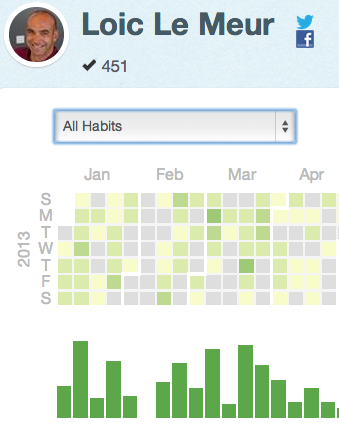
Loïc Le Meur, the founder of the LeWeb tech conference, steered away from meditation at first because it didn’t seem like a habit he could relate to. He didn’t know anyone who openly meditated, which made it harder to imagine regular meditation in his life.
The truth is that some of the most successful people meditate regularly including at least four of the entrepreneurs mentioned in this article. Meditation has a branding problem: you’ll rarely see it on productivity tip lists but among other benefits, 75% of participants in Lift’s one-month meditation challenge said daily meditation improved their focus at work.
I’d never meditated until I noticed that it was a very popular habit on Lift. I decided to give it a go. I have to admit I really thought mediation was for weird people and not for me, but Lift showed me that many of my friends were doing it and that gave me confidence to try it out.
After a good week of meditating for 10 minutes a day, though, things settled down and I started noticing the benefits. Ideas still come but I can “see” them with some distance and let them go, allowing my mind to rest… I can now meditate for more than 30 minutes. When I [meditate], I feel good for the rest of the day. I generally meditate in the morning after a workout or whenever I feel my brain is packed with too much pressure.
Build Tiny Habits: They Can Be Surprisingly Powerful
Takeaway: The smallest habits like looking people in the eye during conversations can be your most effective productivity tools.
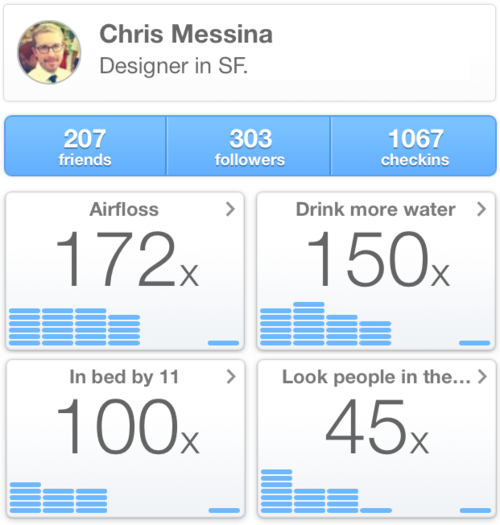
Chris Messina, UX Designer at Google and the inventor of the Twitter hashtag is improving his communication skills with the habit of making eye contact with people during conversations. Say what?
Messina has all the tech and tools at his disposal to increase his productivity yet he chose to focus on building a simple habit…and he’s completely right for doing so. Making eye contact has been shown to increase your effectiveness during conversations. Studies found that the appropriate gaze can increase your success in face to face meetings like job interviews and improve your chances at love. It’s a brilliant productivity hack because it’s so simple and easy to do. There are loads of different productivity hacks for every industry. For example, if you’re a lawyer you can check out this CRM tool that increases productivity for Lawyers. It doesn’t what your job is, there is always a hack that you can use to improve your work.
About a month ago (early days still I suppose!) I started tracking a new habit to look people in they eye when conversing with them. Seems simple and obvious, and I’ve observed that many people seem to already do this naturally (if not intensely!) but for me, I’d realized that I’d look down or away when talking, like I wasn’t owning my words or explaining something in a rushed, confusing manner.
I don’t know if anyone actually noticed the change, but by taking the time to slow down, observe my behavior, adjust it, and look people in the eye, I feel like can articulate my ideas better, connect with my audience more directly, and employ more of my senses when interacting with others. I’m still experimenting with this, but if I can communicate more clearly with my peers, the result is that we’ll both be more productive.
Optimize Your Daily Routines
Takeaway: You can plan your daily schedule so that different habits support each other, maximizing the benefits you receive from all of them.
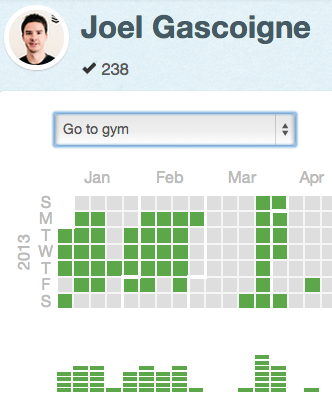
Joel Gascoigne, the founder of Buffer, is famous for strictly adhering to his morning and evening routines. It’s because Joel knows that missing his 10pm bedtime means he’ll sleep late (and lose his most productive work time) or skimp on sleep (and reduce his effectiveness at work).
Habits produce effects that linger on long after you perform them. If you recognize this you can schedule your day so that benefits are optimized and detriments are minimized. Also, just like Joel you can refine your routine through experimentation and iteration.
My habit of going for a walk every evening before bed is the most powerful and life-changing habit that I’ve built in the last couple of years. I’ve moved a lot in the last few years, but I always make rebuilding this habit quickly a priority when I am in a new location. It is a simple 20 minute walk (in SF it’s just walking a loop of a few blocks).
When I do this habit consistently, it gives me a chance to disengage from my day. As a result I sleep on time and have a better sleep overall. The habit is crucial to my early morning routine (5am daily currently), which is important because I find that I am the most productive in the early hours.
Experiment with New Habits Regularly
Takeaway: Experimentation is the best (and only) way to learn what habits make you more productive.
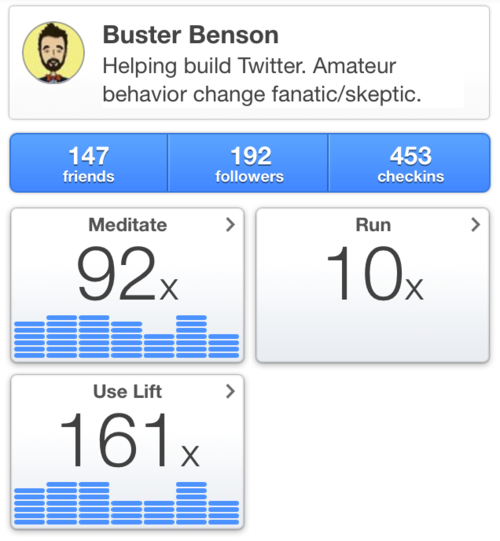
The godfather of behavior change apps Buster Benson learned a lot when building quantified self startups like 43 Things, Health Month and 750 Words. He discovered his most productive habit, writing, by trying new habits until he found the productivity hack that worked best for him.
Pay attention to the actions you take during the day to find out what habits make you more or less effective. Buster tracks everything: emails, tweets, photos, meals, exercise, meditation, mood levels, words, etc. He’s still trying out new habits like meditation and running, too. You don’t have track habits as intensely as Buster, but you could learn a lot about what makes you more productive by experimenting with new routines and reflecting on the results.
All of my favorite daily habits include letting some unfiltered stream-of-consciousness to the surface. Walking to and from work, meditating, and taking a picture at 8:36pm all fit this pattern. However, the most valuable of these unfiltered streams has been my habit of writing 3 pages of unfiltered, stream-of-consciousness, brain-dump *BLAH* on 750words.com.
The actual words rarely matter, it’s all about getting them out. It’s the best way I currently know that consistently helps me untangle something that’s bothering me, solve problems that I can’t quite articulate, or get something out of my system so I can move on. I always feel noticeably lighter after writing 750 words.
Hack Your Way to Productivity by Learning the Science of Behavior Change
Takeaway: If you know the first principles of behavior change, you’ll have the knowledge (aka superpower) to change or build any habit.
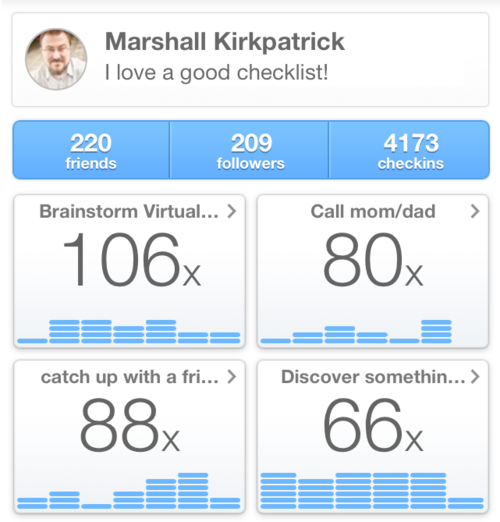
Marshall Kirkpatrick, founder and CEO of Littlebird, went further than most people do when building habits: he learned the science behind how our body and brain create new behaviors. He picked up some of his techniques from the work of Dr. BJ Fogg, renowned behavior change guru and Head of the Persuasive Technology Lab.
If you learn the scientific principles that drive your behavior (no one is immune), you, too, can hack your way to increased productivity. Here’s a crash course from Fogg’s research: behavior is the result of having enough motivation and ability to perform an action at the time that you’re triggered to do it. So find ways to increase your motivation (rewards or support from friends), ability (make smaller goals). Don’t forget to set up triggers and reminders, too.
I learned from Dr. BJ Fogg’s Tiny Habits program that a good approach to picking up new habits is to 1) make them small 2) tie them to an anchor habit you’ve already got (you’re old habit becomes a trigger) and 3) celebrate when you do them.
So every morning after I make coffee, I get out my vitamins, then I open up the Harvard Business Review mobile app and read their Management Tip of the Day, then I check off those two habits on Lift. Then I open up my mobile flashcard app and use frequent recall to assimilate the lessons I’m learning in life (like BJ Fogg’s 3 steps to picking up new habits) while I stretch in my living room and drink coffee. Then I check off flashcards and stretching.
I’ve gotten much better at taking vitamins (which I refer to in my head as Self Optimization Pills), I’m learning a bunch of great management tips and I’m assimilating my learning into my brain and life for the long term. Lift is helpful because it removes the mental overhead of remembering to do those things. I don’t need to remember, I just look at my checklist and do what it says.
There is one thing that all of these entrepreneurs have in common: they’ve all built habits using Lift.
Thanks to all of the entrepreneurs featured and to Power Lifters Jason Shen, Erika Carlson, Lauren Bacon, Peter Boyce II and Walter Chen.

